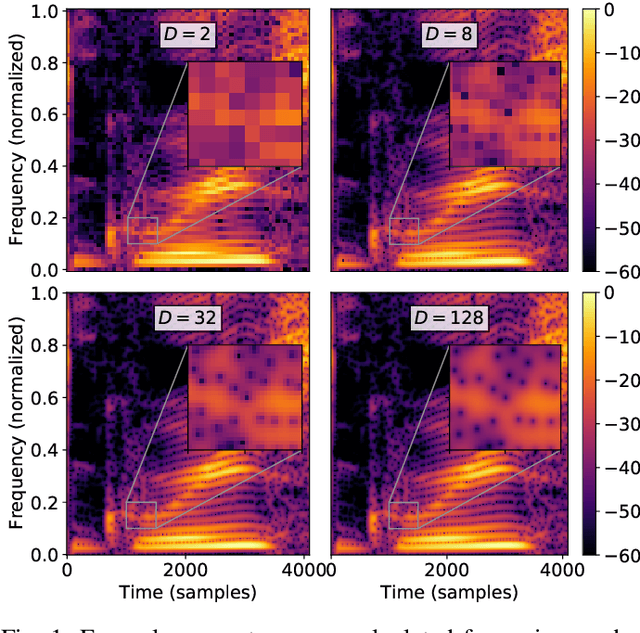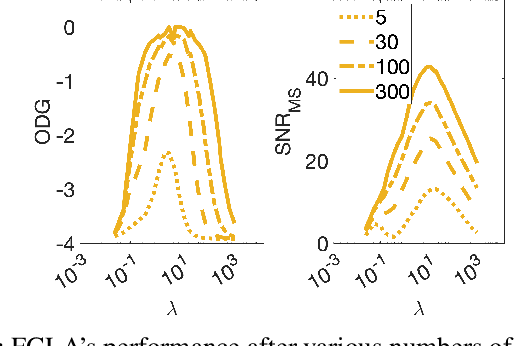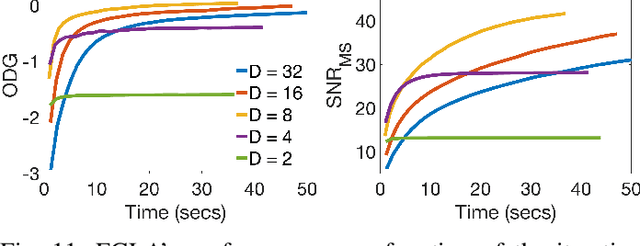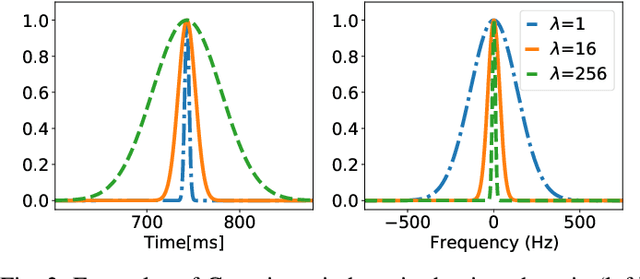Time-Frequency Phase Retrieval for Audio -- The Effect of Transform Parameters
Paper and Code
Jun 09, 2021



In audio processing applications, phase retrieval (PR) is often performed from the magnitude of short-time Fourier transform (STFT) coefficients. Although PR performance has been observed to depend on the considered STFT parameters and audio data, the extent of this dependence has not been systematically evaluated yet. To address this, we studied the performance of three PR algorithms for various types of audio content and various STFT parameters such as redundancy, time-frequency ratio, and the type of window. The quality of PR was studied in terms of objective difference grade and signal-to-noise ratio of the STFT magnitude, to provide auditory- and signal-based quality assessments. Our results show that PR quality improved with increasing redundancy, with a strong relevance of the time-frequency ratio. The effect of the audio content was smaller but still observable. The effect of the window was only significant for one of the PR algorithms. Interestingly, for a good PR quality, each of the three algorithms required a different set of parameters, demonstrating the relevance of individual parameter sets for a fair comparison across PR algorithms. Based on these results, we developed guidelines for optimizing STFT parameters for a given application.
 Add to Chrome
Add to Chrome Add to Firefox
Add to Firefox Add to Edge
Add to Edge